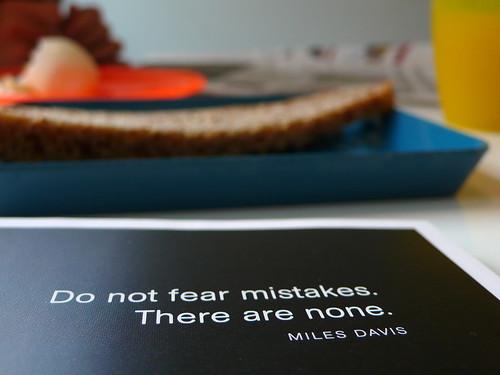You when they say that you shouldn’t sweat the small stuff? Well, I would agree except when it comes to query letter writing – that’s when the small stuff can really break you! From catching random typos to making the gaffe of saying “Dear John” when you’re writing to Emily, first impressions count, so make ’em good.
I do receive pitches for my travel website pretty regularly, and I thought I’d share some of the silly things that people come up with that they really should have left off their query letter.

“My last editor decided that she didn’t want this, so…”
Now there’s nothing wrong with shopping a failed piece elsewhere. But there is no need to advise to an editor that they were a second choice. Bad move – it doesn’t do anything to sell your angle, so just leave it.
“I would really like more than $300 for this, plus payment for images and any royalties from…”
Woah there! We just met. Isn’t it a little early to be talking about money? Some publishers include payment information in their submission guidelines, and other’s don’t. If it is the latter, you pitch and then once you get an editor’s interest, you can start to talk cash. If you start talking about the moolah up front, what’s an editor to assume that you’re just in it for the dosh and really could care less about their readers?
“I have attached several 5MB files with images that would be perfectly suited for this piece….”
Ok, so you’ve just zapped yourself, because if your potential editor’s Inbox is anything like mine (or worse, Deb’s), it will have broken the whole system, and to fix it your email will have been deleted. Plus with huge files, one is quick to assume it might be a virus. Spam filters also love to squirrel away messages with attachments, so just don’t add them. If you know of the perfect image, put it on Flickr or somewhere on your website, and just include a link in the email. Just say no to attachments.
“I am the perfect writer for this because I’m happy-go-lucky and I’ve read a copy of your [magazine/site] before….”
You shouldn’t mention you’ve read the magazine before – if you haven’t then you have no business applying, because if you haven’t read it, you couldn’t know if your pitch is a good fit. Secondly, you should only include the information that is pertinent to why you should write that particular article. So if it’s a piece about motherhood, you can mention you’re a mother. If it’s about personal branding and you’ve got 50k Twitter followers, mention it. What set of specific facts about you make you the absolute best, if not only person who can do this piece justice?
“I’ve included a piece on spec, but it’s pretty rough and needs a lot of work….”
Don’t send ‘rough drafts’ – your editor is an editor, not your schoolteacher proofing your homework. If you’re unclear about the column you’re pitching for, try to get in touch and get the clarifications you need before submitting. If that’s not possible and you do just have to send in something on spec, then ditch the negative tone – using words like rough and needs work are telling your editor that your work isn’t very good, even before they read it.
A few other mistakes that I’ve not seen myself, but have been highlighted here at FWJ recently:
- Ditch the Humor: while having a personality and style is ok, being funny doesn’t win any awards – or gigs – if you cross the line. Are you being unique or are you being a funny jerk?
- Tell them Why its Newsworthy: Kymlee, an editor I interviewed here at FWJ last month, says you should tell her why the piece is newsworthy – why should she care? Or more specifically, why her readers should?
What other silly mistakes have you made or have seen in a query letter?
Photo by plindberg

Leave a Reply